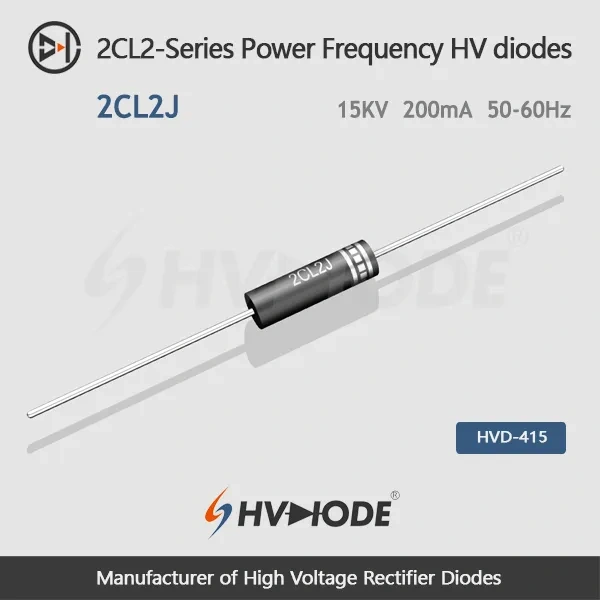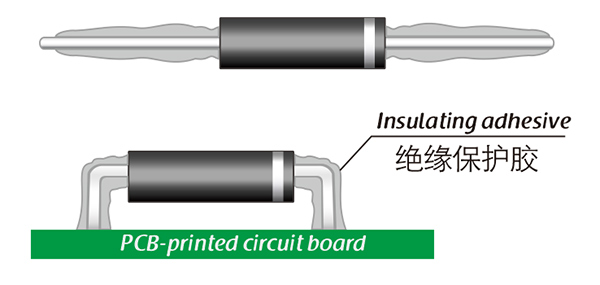





| 2CL2J Power Frequency High Voltage Diode Data Sheet | ||||
| Parameter | Symbol | Unit | Test Conditions | Value |
| Repetitive Peak Backward Voltage | Vrrm | KV | Ta=25℃ Ir=2.0μA | 15 |
| Peak Working Backward Voltage | Vrwm | KV | Ta=25℃ Ir=2.0μA | 15 |
| Average Forward Current | If(AV) | mA | 50Hz Half-sine Wave , Resistance load @Tbreak=50℃ | 200 |
| Backward Recovery Time | Trr | nS | -- | |
| Surge Forward Current | Ifsm | A | 0.01S @ Half-Sine wave 50Hz | 20 |
| Operating Ambient Temperature | Ta | ℃ | -55~+150 | |
| Storage Temperature | Tstg | ℃ | -55~+125 | |
| Forward Peak Voltage | Vfm | V | ≥16.5 | |
| Backward Peak Current | Irrm1 | μA | @ Ta=25℃ VRM=VRRM | 2.0 |
| Irrm2 | μA | @ Ta=100℃ VRM=VRRM | 20.0 | |
| Absolute Maximum Ratings & Electrical Characteristics | ||||

Here, suitable insulation adhesive materials can be selected based on the different usage situations of engineers.




